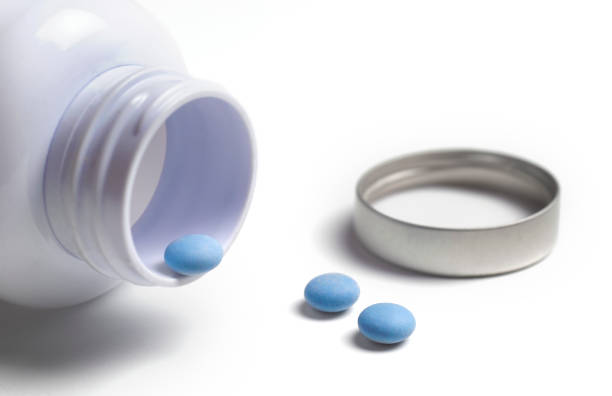Banocide Forte Buy Online is a widely used medication primarily employed in the treatment of parasitic infections. Its active ingredient is diethylcarbamazine (DEC), which is known for its efficacy in targeting a variety of parasitic worms. This article delves into the uses, side effects, mechanism of action, and important considerations for Banocide Forte.
Uses of Banocide Forte
Filariasis
Banocide Forte is most commonly prescribed for the treatment and prevention of filariasis, a tropical disease caused by infection with roundworms of the Filarioidea type. The medication is particularly effective against microfilariae, the larval stage of the parasites that cause lymphatic filariasis, including Wuchereria bancrofti, Brugia malayi, and Brugia timori.
Loiasis
Loiasis, or African eye worm, caused by the parasitic worm Loa loa, is another condition treated with Banocide Forte. The drug helps eliminate the adult worms and their larvae, reducing the symptoms and preventing complications associated with the infection.
Toxocariasis
Toxocariasis, an infection caused by Toxocara canis or Toxocara cati (roundworms commonly found in dogs and cats), can lead to serious complications if left untreated. Banocide Forte is used to treat this zoonotic infection, targeting the larvae that migrate through various body tissues.
Tropical Pulmonary Eosinophilia
This condition, characterized by high levels of eosinophils in the lungs due to parasitic infections, responds well to treatment with Banocide Forte. The medication helps reduce inflammation and clears the parasitic larvae from the lungs.
Other Parasitic Infections
In addition to the above conditions, Diethylcarbamazine Citrate may be used off-label for various other parasitic infections, including certain cases of ascariasis and onchocerciasis (river blindness), although its use in these conditions is less common.
Mechanism of Action
Diethylcarbamazine, the active component of Banocide Forte, works by altering the surface structure and metabolic activity of the microfilariae and adult worms. This disruption makes the parasites more susceptible to attack by the host’s immune system. Diethylcarbamazine enhances the adherence of granulocytes to the parasites, promoting their destruction. Additionally, it inhibits the production of arachidonic acid in microfilariae, leading to immobilization and death of the larvae.
Dosage and Administration
The dosage of Banocide Forte varies depending on the type and severity of the parasitic infection, the patient’s age, weight, and overall health. It is crucial to follow the prescribed dosage and duration of treatment as directed by a healthcare professional. Commonly, the drug is administered orally in tablet form, with doses ranging from 2 mg to 6 mg per kilogram of body weight, divided into three daily doses.
Side Effects
Like any medication, Banocide Forte can cause side effects, although not everyone experiences them. Side effects can range from mild to severe and may include:
Common Side Effects
- Gastrointestinal Issues: Nausea, vomiting, and abdominal pain are among the most frequently reported side effects.
- Headache: Some patients may experience mild to moderate headaches.
- Dizziness: Feelings of dizziness or lightheadedness can occur, particularly at higher doses.
- Allergic Reactions
- Rash and Itching: Skin reactions such as rashes and itching are possible.
- Swelling: Angioedema, characterized by swelling of the face, lips, and throat, although rare, can occur.
Systemic Reactions
- Fever and Malaise: Fever, fatigue, and a general feeling of discomfort are sometimes reported, especially when the body is reacting to the dying parasites.
- Muscle and Joint Pain: Some patients might experience myalgia (muscle pain) or arthralgia (joint pain).
Hematological Effects
- Eosinophilia: An increase in eosinophils (a type of white blood cell) is a common reaction to the treatment, reflecting the body’s response to parasitic die-offs.
Ocular Effects
- Visual Disturbances: In rare cases, patients might experience vision changes, particularly if they are being treated for eye-related parasitic infections.
Serious Side Effects and Precautions
While rare, some serious side effects require immediate medical attention:
Severe Allergic Reactions
Severe allergic reactions, including anaphylaxis, although extremely rare, necessitate prompt medical intervention.
Severe Systemic Reactions
Intense systemic reactions such as severe fever, widespread rash, and intense fatigue could indicate a more serious underlying response to the treatment.
Contraindications and Interactions
Contraindications
- Allergy to Diethylcarbamazine: Patients with a known allergy to diethylcarbamazine or any component of Banocide Forte should not use this medication.
- Severe Renal or Hepatic Impairment: Caution is advised, and alternative treatments should be considered for patients with severe kidney or liver disease.
Drug Interactions
Banocide Forte can interact with other medications, potentially altering their effects. Some notable interactions include:
- Antihistamines and Corticosteroids: These medications can be used concomitantly to manage allergic reactions and inflammatory responses.
- Other Antiparasitic Drugs: Combining with other antiparasitic medications should be done under medical supervision to avoid adverse effects.
Special Considerations
Pregnancy and Lactation
The safety of Banocide Forte during pregnancy and breastfeeding has not been well established. It should only be used if the potential benefits justify the potential risks to the fetus or infant.
Children and Elderly
Children and elderly patients may be more sensitive to the side effects of Banocide Forte. Dosage adjustments and close monitoring are recommended for these populations.
Monitoring and Follow-Up
Regular monitoring of blood counts and liver function tests may be necessary during prolonged treatment with Banocide Forte to detect any adverse effects early.
Patient Education and Adherence
Educating patients about the importance of adherence to the prescribed treatment regimen is crucial for the effectiveness of Banocide Forte. Patients should be advised to:
- Take the medication with food to minimize gastrointestinal discomfort.
- Report any severe or unusual side effects to their healthcare provider immediately.
- Complete the full course of treatment even if symptoms improve before finishing the medication.
Conclusion
Banocide Forte (diethylcarbamazine) is a critical medication in the fight against various parasitic infections, particularly those caused by filarial worms. Its effectiveness in targeting both adult worms and larvae makes it a cornerstone in the management of diseases like filariasis and loiasis. While generally well-tolerated, it can cause a range of side effects, and certain precautions must be taken to ensure safe use. Patients should work closely with their healthcare providers to monitor for adverse reactions and achieve the best possible outcomes from their treatment.





